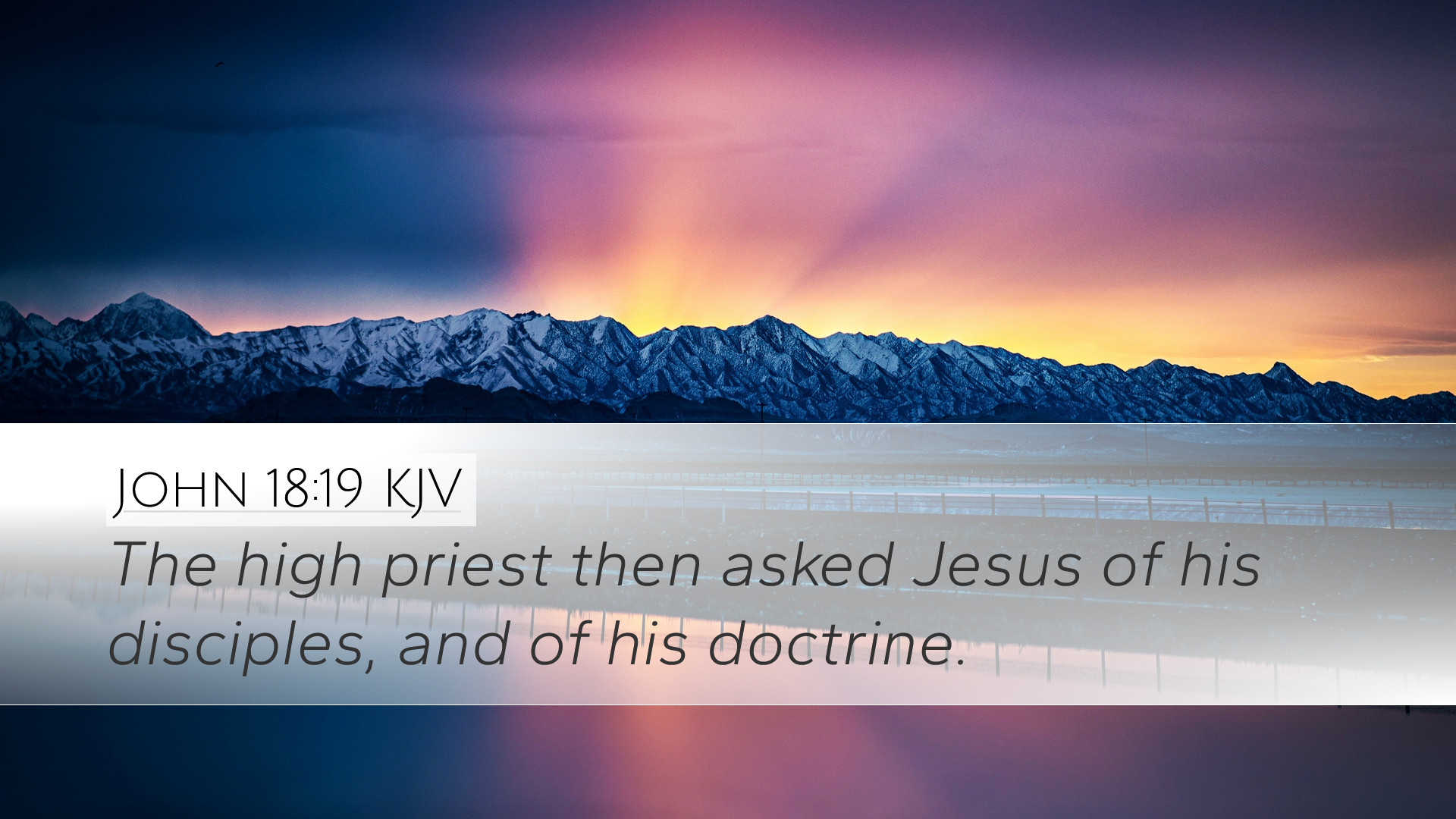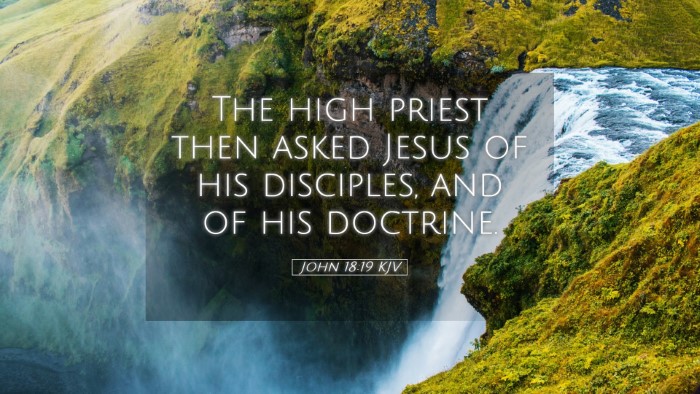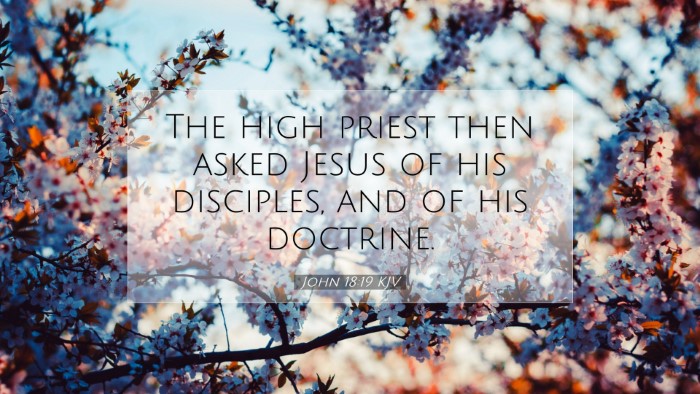Commentary on John 18:19
In John 18:19, we encounter a pivotal moment in the narrative of Jesus' trial preceding His crucifixion. The verse states: "The high priest then asked Jesus of his disciples, and of his doctrine." This inquiry is significant as it reveals the tension between Jesus and the Jewish authorities as they seek to comprehend His influence and the nature of His teachings.
Contextual Background
Understanding the social and historical context of this passage is crucial. As Adam Clarke notes, at this time, the high priest had a vested interest in maintaining religious authority, especially with the growing influence of Jesus. This encounter not only illustrates the systematic approach of the Jewish leaders in attempting to undermine Jesus but also sets the stage for the fulfillment of prophecies regarding the Messiah.
Key Themes and Exegesis
-
Inquiry into Disciples and Doctrine
Matthew Henry emphasizes the high priest's questioning method as a strategic attempt to identify Jesus' followers and discredit His teachings. By inquiring about His disciples, the high priest aimed to instill fear among those associated with Jesus and to reveal any potential threats to the established order.
-
Jesus' Authority and Integrity
Despite the intimidating environment of the interrogation, Clarke highlights that Jesus maintains dignity and calmness. His demeanor exemplifies the perfect embodiment of one who was assured of His divine mission. In contrast to the high priest's position, Jesus embodies a higher authority, one that transcends both the religious and political systems of the time.
-
Witness to the Truth
Albert Barnes draws attention to the concept of testimony, which is vital in this passage. Jesus’ willingness to openly declare His doctrine acts as an affirmation of His mission. He responds to the inquiry not just as a defense but as a witness to the truth, emphasizing that He has openly taught and welcomed scrutiny of His teachings.
Theological Reflections
This verse also invites deeper theological reflection on the relationship between authority, truth, and witness. The dynamic between Jesus and the high priest illuminates the broader conflict between earthly authority and divine truth. The high priest’s quest for knowledge regarding Jesus’ disciples indicates an interest in control, while Jesus, by contrast, extends an invitation to understand divine truth through His ministry.
Application for Contemporary Readers
-
Facing Opposition
For pastors and leaders, John 18:19 serves as a poignant reminder of the reality of opposition in ministry. Just as Jesus faced scrutiny and attempts to marginalize His influence, modern-day believers must be prepared to encounter and respond to similar challenges.
-
The Call to Witness
This verse is a call to witness for all Christians. Like Jesus, believers are called to openly share and defend their faith, embodying the teachings of Christ in a compelling manner. The boldness with which Jesus responds may inspire believers to be similarly fearless in the face of questioning.
-
Reflection on Discipleship
Furthermore, the interplay between Jesus and His disciples highlights the importance of discipleship. The inquiry prompts readers to consider the depth of their own commitment to following Christ and the implications their faith has in a world that often resists or questions it.
Conclusion
In summary, John 18:19 encapsulates significant themes concerning authority, truth, and witness amidst opposition. The insights gleaned from traditional commentaries enhance our understanding, urging us to reflect on our own roles as disciples. This text not only narrates a moment in history but also prompts ongoing dialogue regarding faithfulness in our walk with Christ, challenging each believer to reach deeper into the heart of their faith amidst an ever-pressing society.


